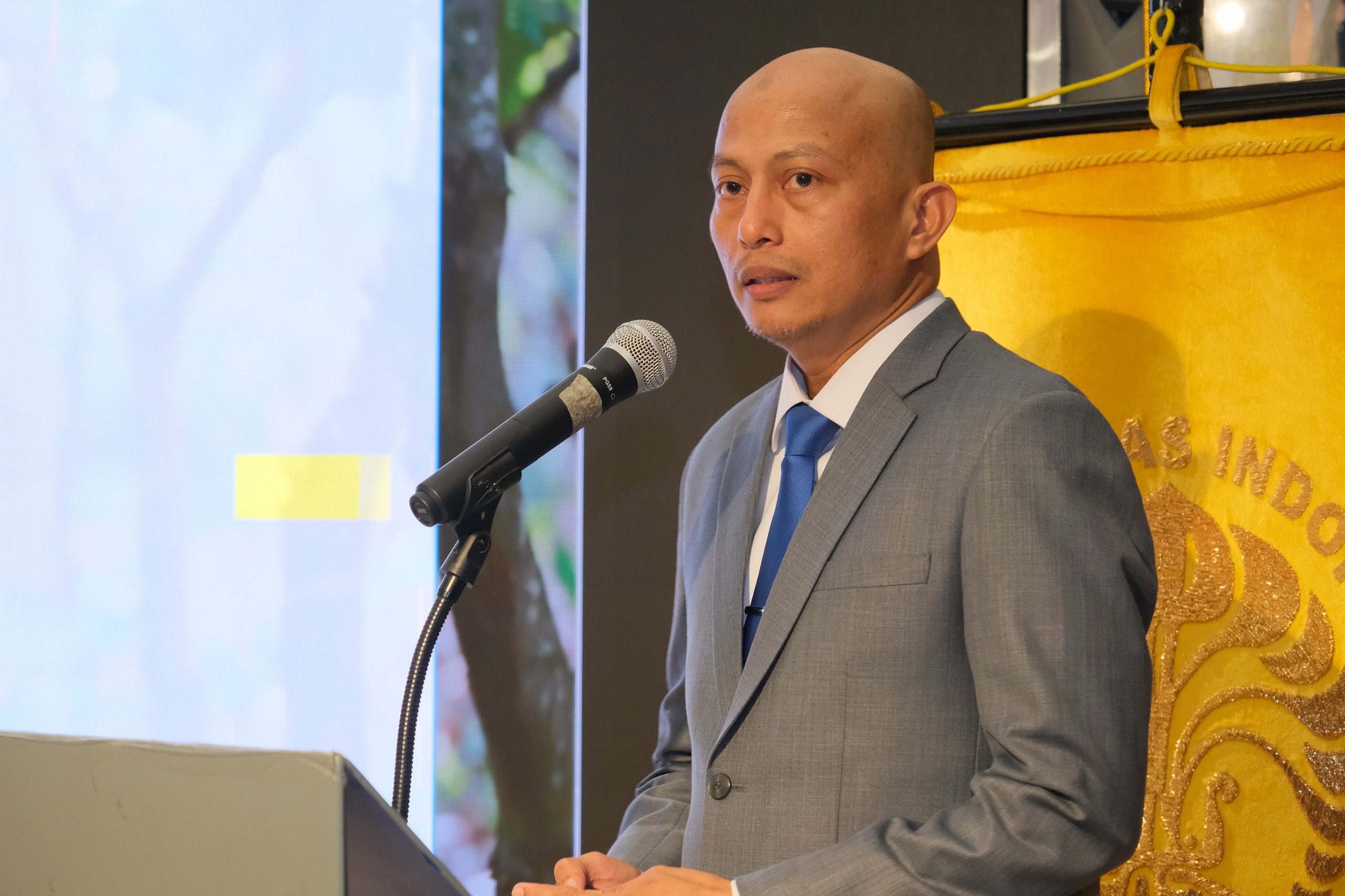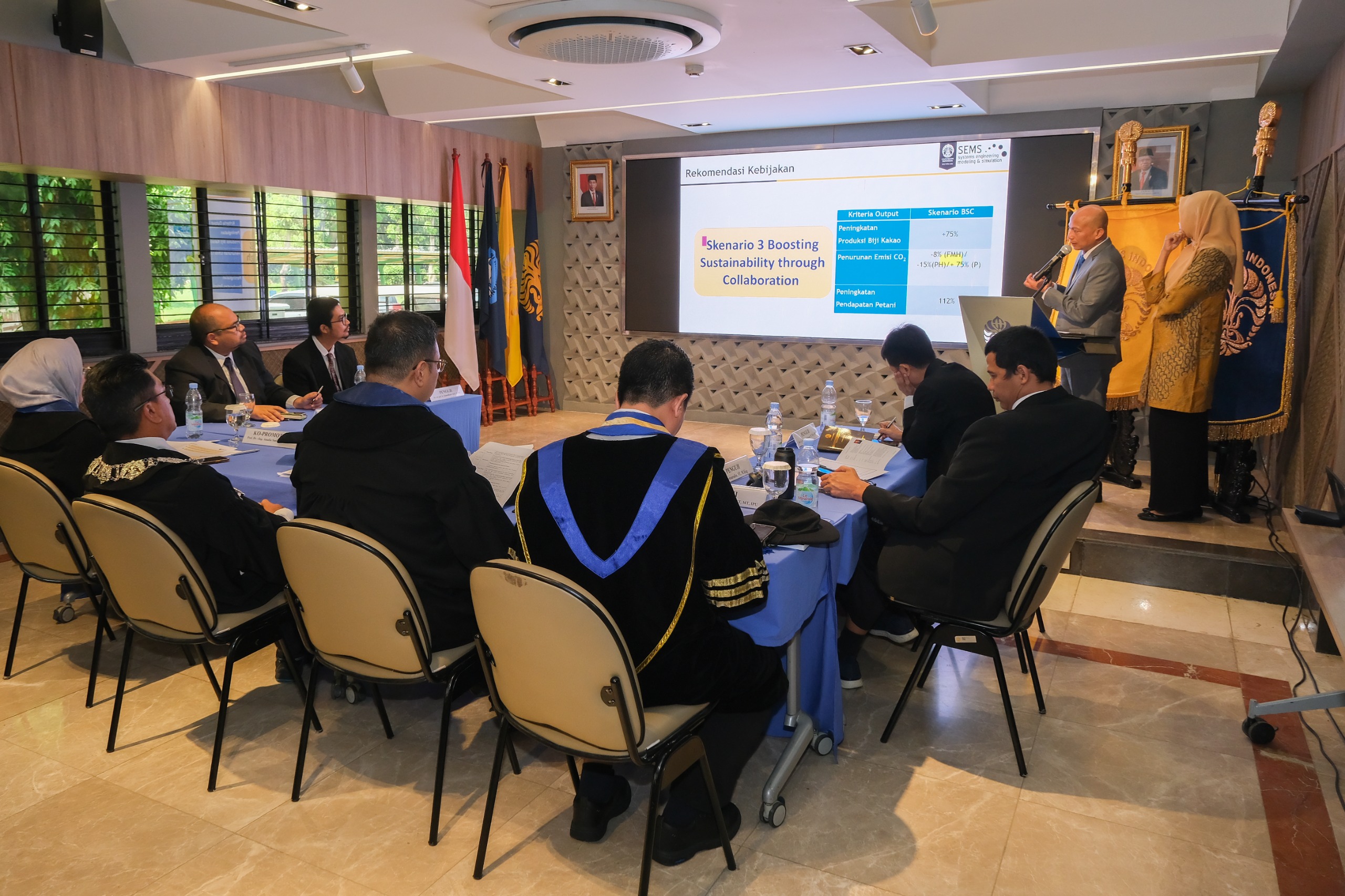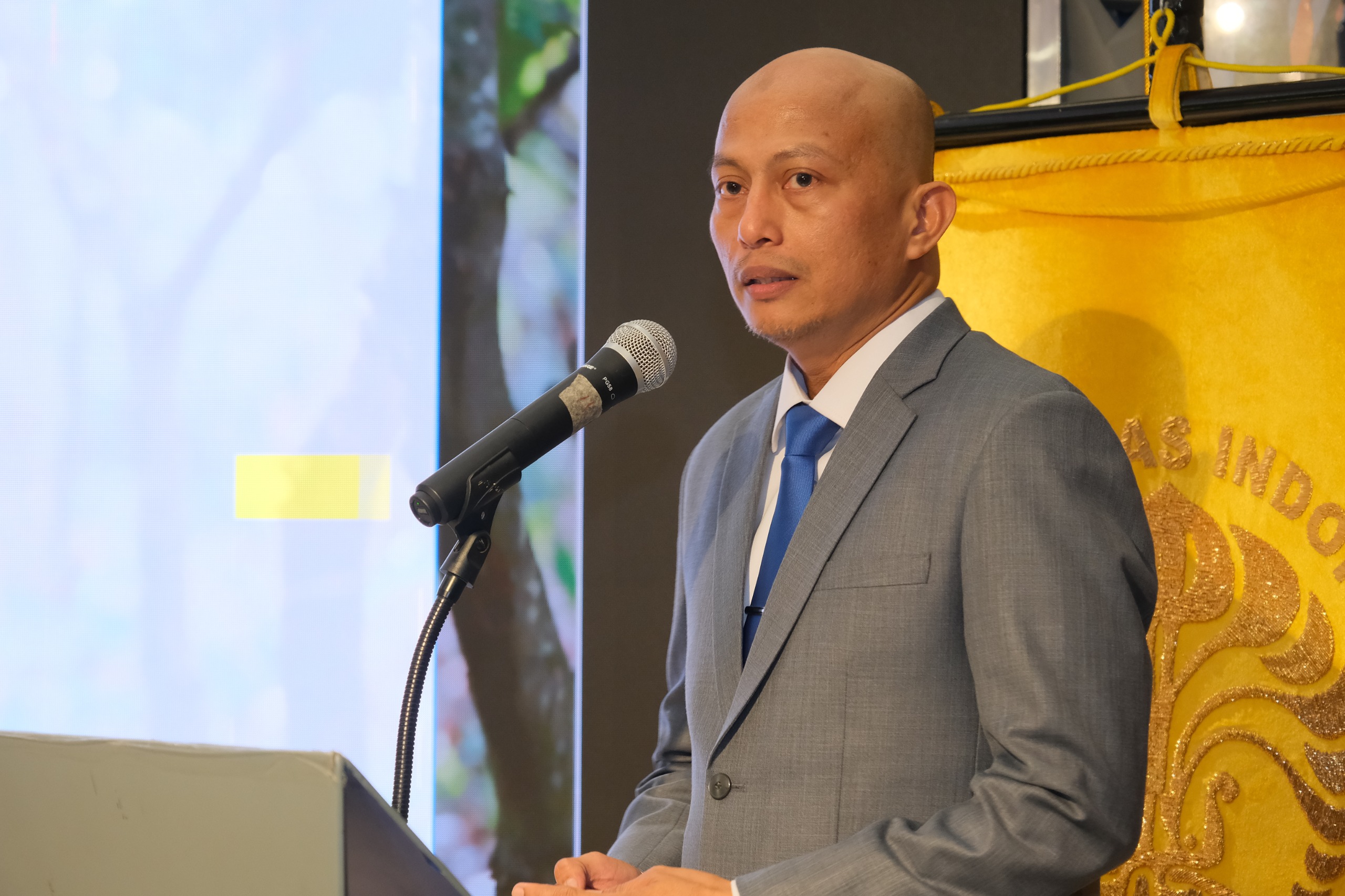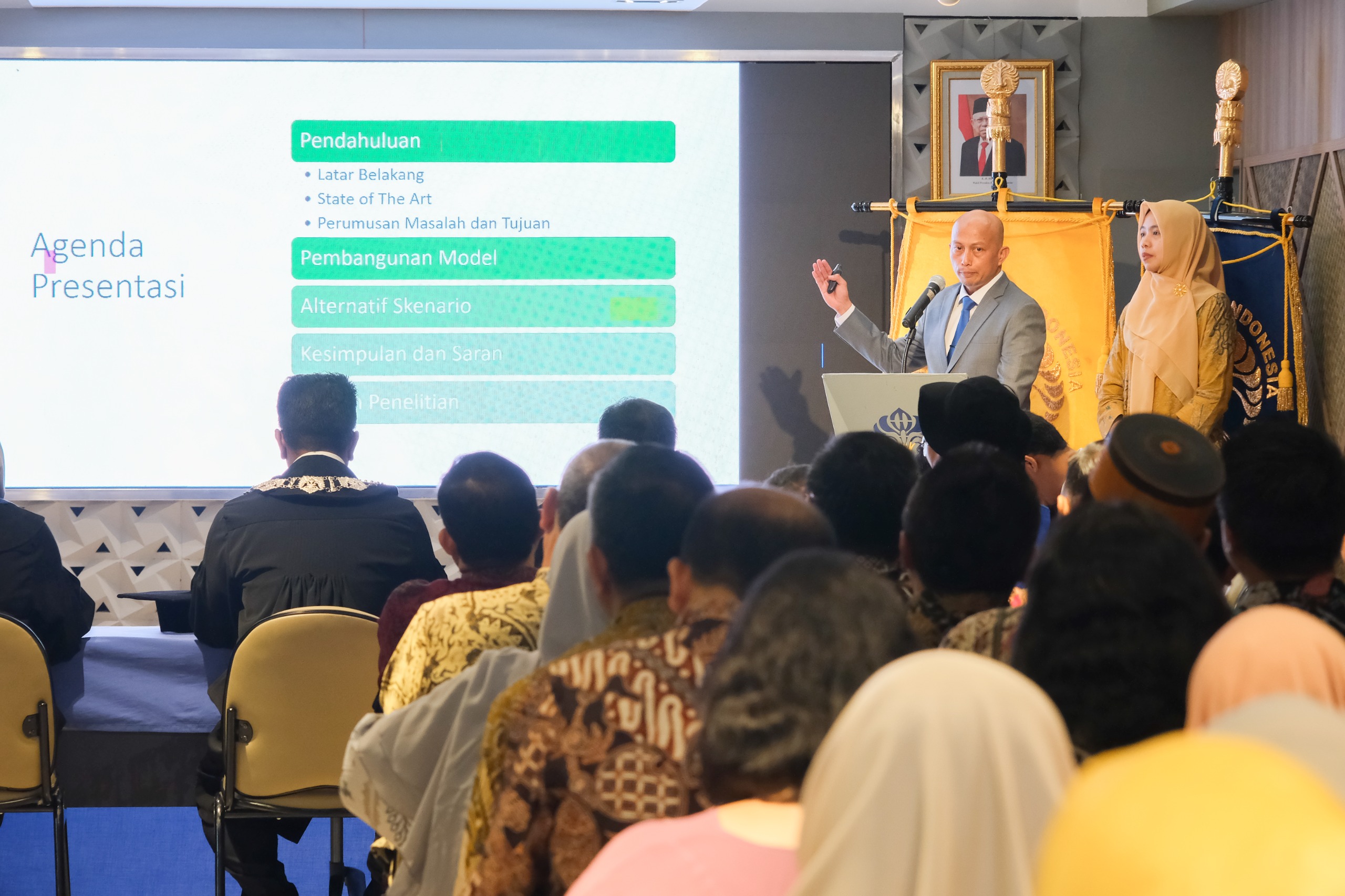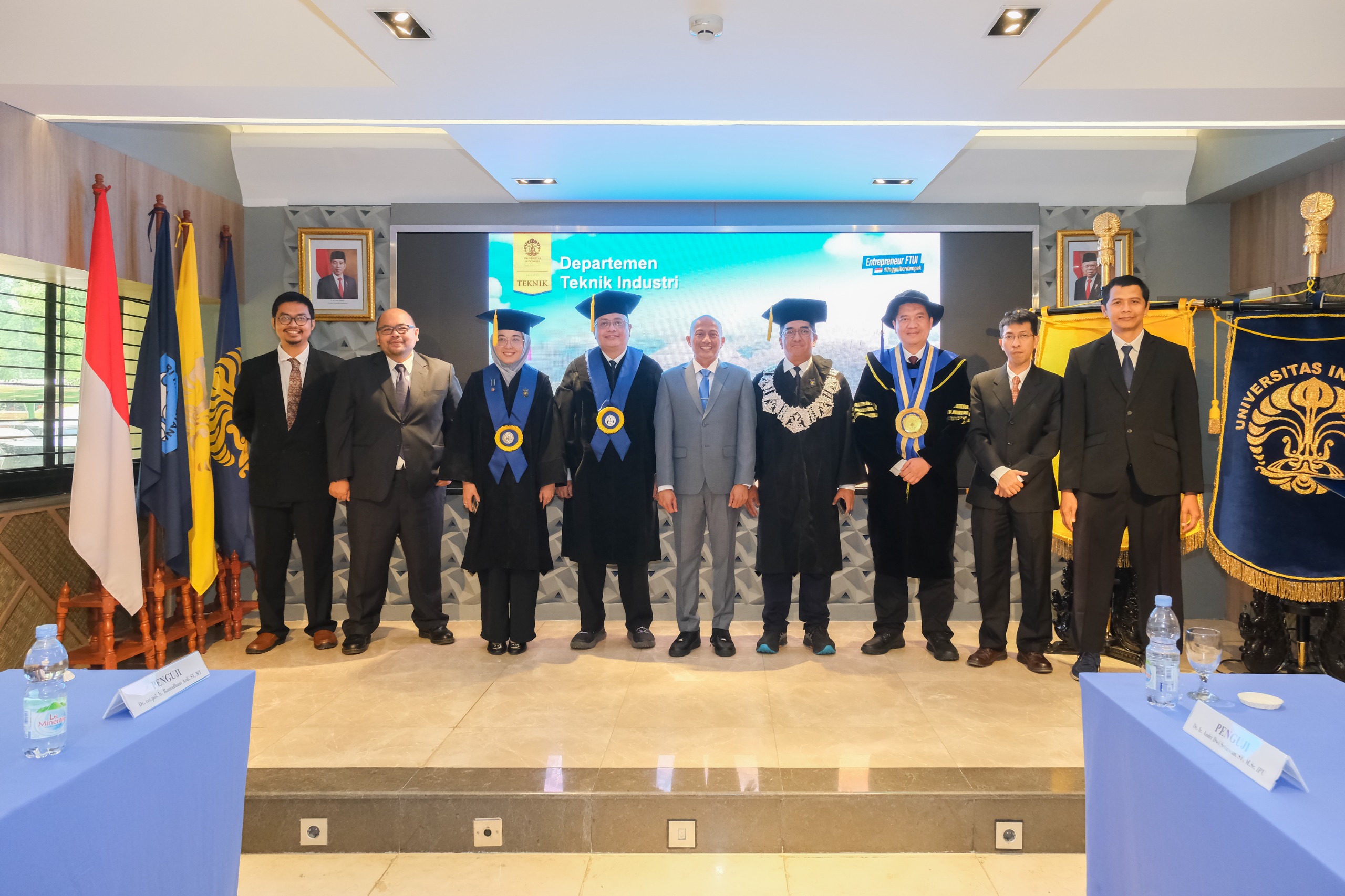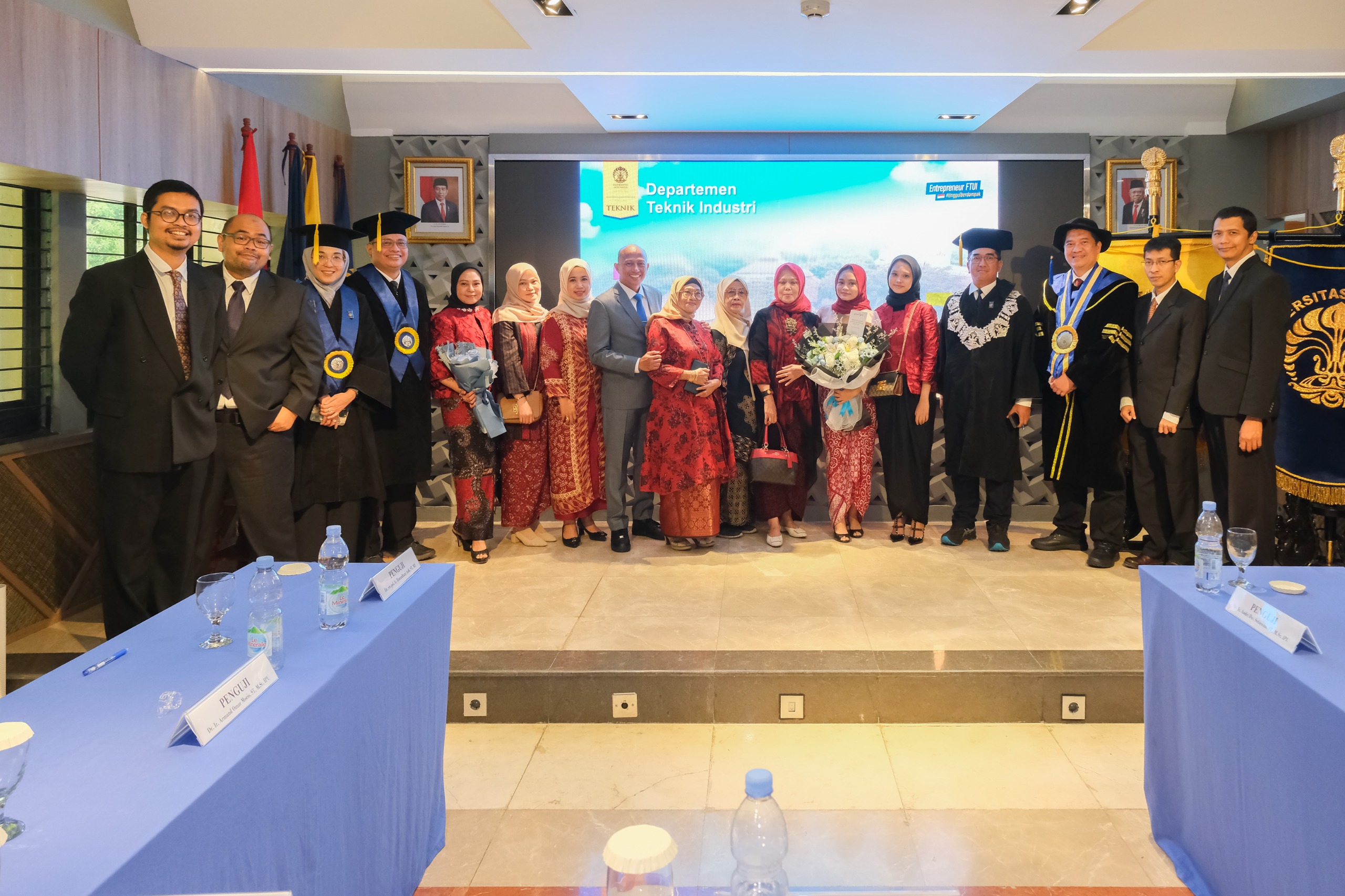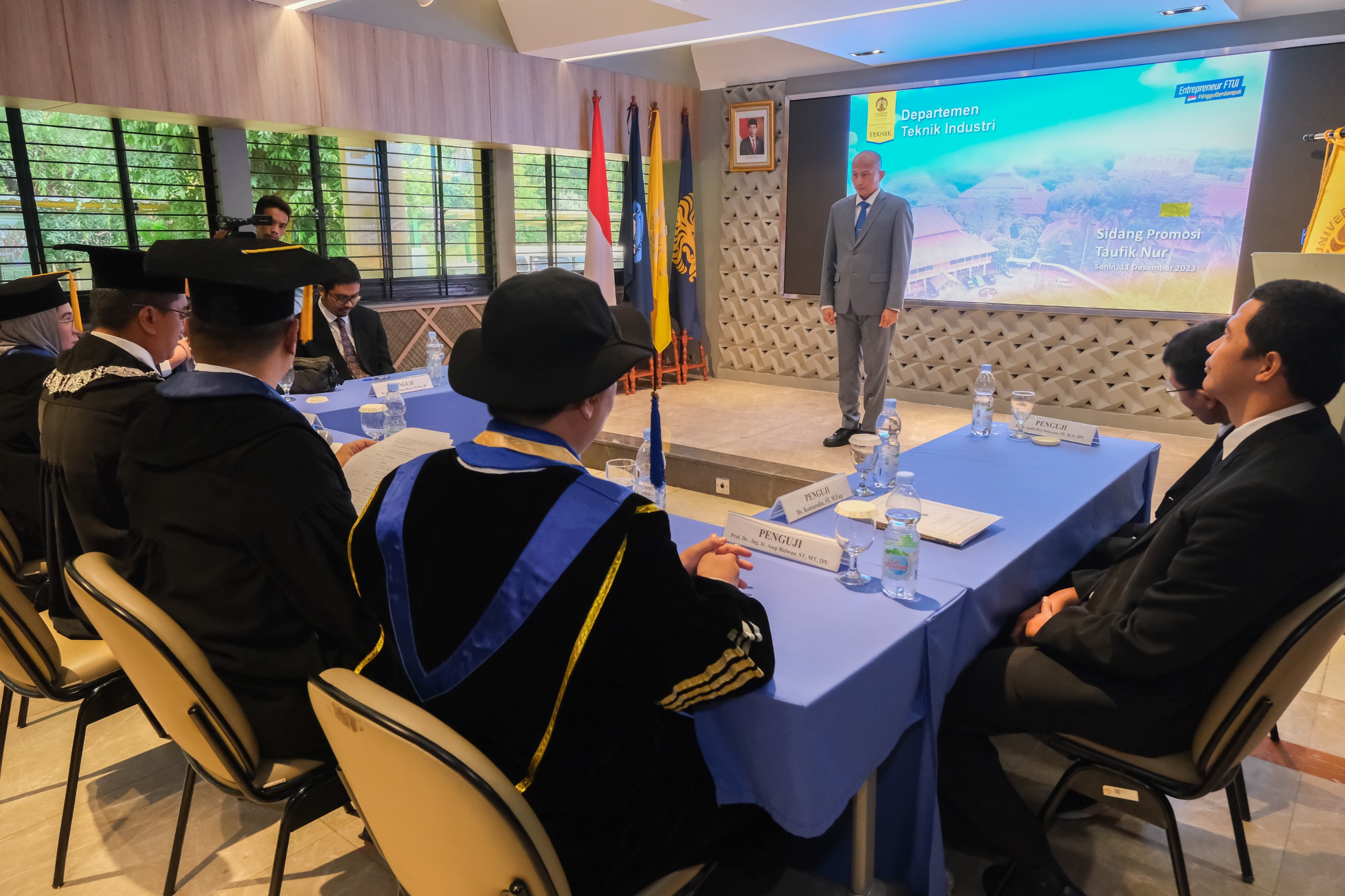Taufik Nur, a doctoral student from the Department of Industrial Engineering at FTUI, has developed a sustainable artisan chocolate supply chain strategy, particularly to address the decline in cocoa bean production in Indonesia. This strategy is outlined in his dissertation titled “Development of a Model and Evaluation of a Sustainable Agri-Food Supply Chain Strategy with a Dynamic System Approach” presented at the open Doctoral Promotion session held on Monday (11/12).
Taufik’s research is driven by the challenges faced by cocoa farmers in Indonesia. The global cocoa farmer count exceeds 6 million, and the industry supports the livelihoods of over 50 million people. However, cocoa production in Indonesia has dramatically decreased by 77% (180,000 tons) in 2022, attributed to pest attacks, soil fertility decline, and ageing plants. This decline has persisted for the last two decades, reaching a critical condition in 2022.
“The artisan chocolate supply chain that I have developed can be a relevant solution to address these challenges in Indonesia. Previous government policies aimed at increasing cocoa production and quality through the Indonesian National Standards (SNI) were considered inefficient due to seed technology issues and a lack of financial incentives for farmers. Therefore, the artisan chocolate industry is seen as a more sustainable and high-quality alternative, opening opportunities to improve the economic conditions and well-being of cocoa farmers,” explained Taufik in his presentation.
The conventional chocolate industry, as a commodity, is considered unsustainable, causing welfare issues for cocoa farmers living below the poverty line without alternative income sources. In contrast, the artisan chocolate industry, also known as craft or speciality chocolate, has grown exponentially over the past 20 years, achieving double the growth of cocoa commodities. Artisan chocolate production, on a small scale, generates premium chocolate using specialty cocoa beans, with a more efficient and sustainable supply chain.
“The artisan chocolate industry in Indonesia began in the early 2000s, but its growth has been slower compared to countries such as Vietnam, the Philippines, and Japan in Asia. Indonesia only contributes 2% to global speciality cocoa bean production, while the contribution of artisan chocolate production is even lower at 0.06%. Although the Indonesian government has started to focus on the development of the artisan cocoa industry by targeting a 2-10% growth in the domestic artisan chocolate market and has a cocoa development roadmap, there is no specific policy model for the development of the artisan chocolate supply chain,” added Taufik.
The development of a sustainable artisan chocolate industry requires support for sustainable supply chain policy modelling. Currently, research on sustainable agri-food policy modelling focuses on network design, distribution, inventory uncertainty, supply structure, supply planning, and production capacity. However, there is still a tendency to use partial approaches, while sustainability issues in the agri-food supply chain are more related to complex system problems.
Taufik explained that this research aims to benefit the development of the cocoa industry from the perspective of farmers, processing industries, and the advancement of scientific knowledge. The goals also include expanding the understanding of stakeholders and policymakers regarding the complexity and dynamics of a sustainable artisan chocolate supply chain, from a multi-actor perspective. This research also aims to enhance the readiness of actors in the artisan chocolate supply chain to meet the demands of sustainability aspects, using simulation models to choose the best strategies to achieve sustainable goals.
Prof. Dr. Heri Hermansyah, S.T., M.Eng., IPU, Dean of the Faculty of Engineering UI (FTUI), stated, “Decision-making by policymakers to support the artisan chocolate industry requires a holistic understanding. Understanding the characteristics of the artisan chocolate industry, such as speciality concepts, single origin, community, and support for environmental management and farmer welfare, is crucial. The characteristics of the artisan industry differ from the characteristics of commodity or confectionery chocolate industries. There is a significant opportunity to increase foreign exchange earnings for artisans because their market is widely open abroad.”
This research dissertation on sustainable agri-food supply chain strategy has successfully led Taufik Nur to earn his doctoral degree with a GPA of 3.80. Taufik is recorded as the 20th doctoral graduate of the Department of Industrial Engineering and the 524th doctoral graduate of the Faculty of Engineering at Universitas Indonesia. The promotion session was led by Prof. Dr. Heri Hermansyah, S.T., M.Eng., IPU, with Prof. Dr. Ir. Akhmad Hidayatno, S.T., MBT., IPU, as the main promoter and Prof. Dr.-Ing. Amalia Suzianti, S.T., M.Sc., as the co-promoter. The examination committee consisted of Prof. Dr-Ing. Ir. Asep Ridwan, S.T., M.T., IPU.; Komarudin, S.T., M.Eng., Ph.D; Dr. Ir. Andri D. Setiawan, S.T., M.Sc., IPU.; Dr. Ir. Armand Omar Moeis, S.T., M.Sc., IPU, ASEAN Eng.; and Dr.rer.pol. Ir. Romadhani Ardi, S.T., M.T.
###
Office of Communication and Public Relations
Faculty of Engineering, Universitas Indonesia

